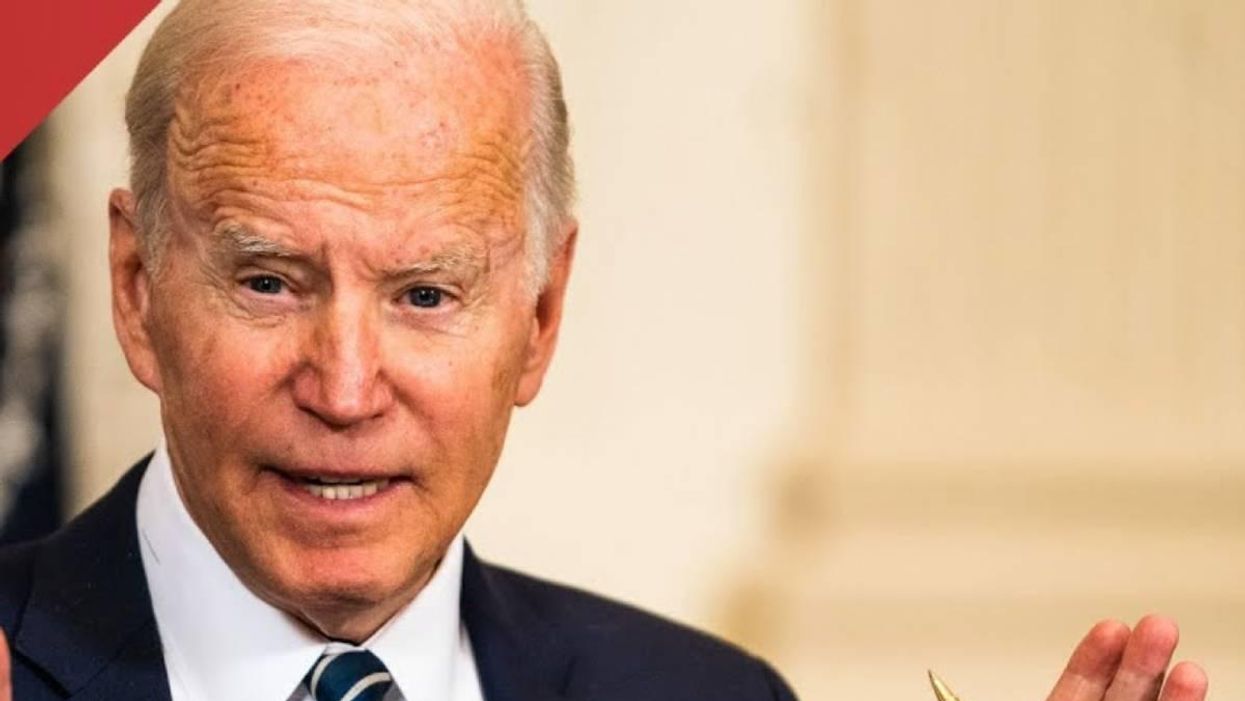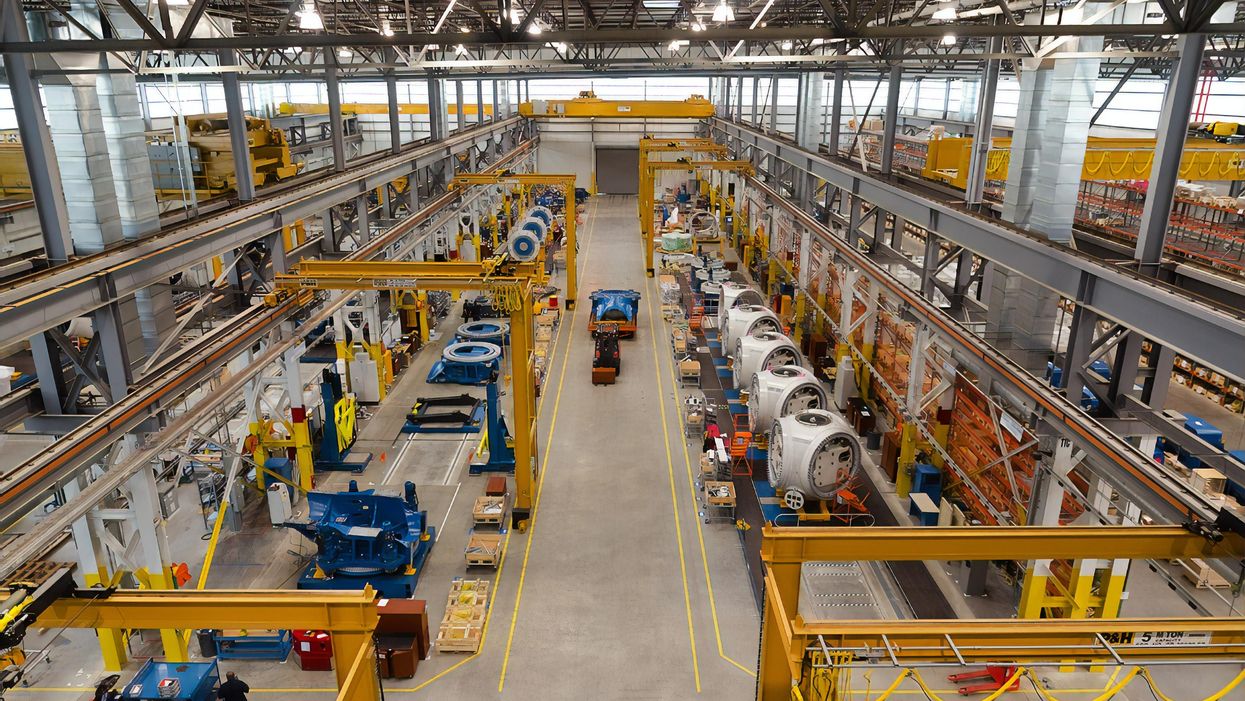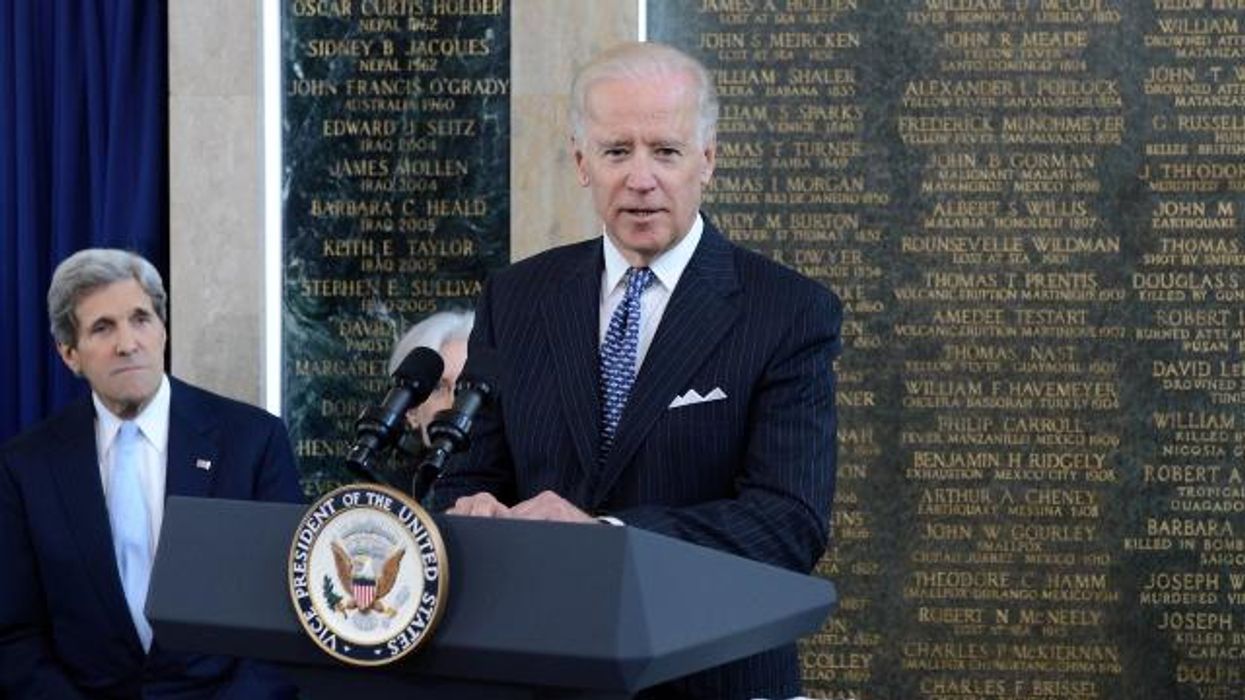Poll: Vast Majority Backs Biden On Climate Action, Drug Prices
President Joe Biden and congressional Democrats are still trying to work out an agreement on a compromise Build Back Better investment package. A new poll shows the vast majority of Americans want them to pass its key components.
The new survey, released Wednesday by the political advocacy groups Data for Progress and Invest in America, found that likely voters strongly back legislation to lower health insurance premiums and prescription drug copays and invest in clean energy. Those polled backed such a bill by a 75 percent -- 17 percent margin; Republicans supported it 65 percent -- 25 percent.
Biden proposed these and other human infrastructure investments as part of his Build Back Better framework in October. His $1.75 trillion plan would have paid for the new spending by raising taxes on those earning $400,000 or more and cracking down on wealthy tax cheats. It passed the House in November — over unanimous GOP opposition — but stalled in the Senate after every Republican opposed it and moderate Sen. Joe Manchin (D-WV) objected to its price tag.
The Biden administration and Manchin have reportedly been trying to reach an agreement on a smaller package that would focus mostly on climate change infrastructure and addressing prescription drug costs while collecting more revenue from the richest Americans and reducing the budget deficit.
Despite Republicans and their allies spending millions of dollars on ads to convince the public that the Build Back Better agenda is a "reckless spending spree" and a step toward socialism, the original package itself was popular with voters. A December Monmouth University poll found 61 percent of American adults backed the plan.
"We're very happy with these results," TJ L'Heureux, press secretary for Invest in America, told the American Independent Foundation. "These numbers clearly show that Americans want investments that lower energy costs and lower health care costs, all of which would be incredibly popular."
"President Biden's American Rescue Plan and Bipartisan Infrastructure Law have been a game-changer for the economy and he's created more jobs in his first year than at any point in US history. But to make the economy work better for everyone, we need to keep momentum going and get these policies over the finish line," L'Heureux added.
Wednesday's poll shows the popularity of the main elements being considered.
Asked if they supported "giving Medicare the power to negotiate lower prices for prescription drugs" and "capping out-of-pocket costs for insulin at $35/month," 83 percent of respondents said yes and eight percent said no to each.
By a 71 percent -- 20 percent margin, voters backed "raising taxes on the wealthiest 0.02 percent of Americans." An identical number favored "increasing funding for the IRS to make sure that the wealthiest Americans and large corporations pay all the taxes they owe."
Those surveyed also backed "ramping up the use of clean energy, like solar and wind power," by a margin of 68 percent -- 23 percent.
"These findings make clear that President Biden's investment package — including its key provisions and pay-fors — isn't just popular: it's bipartisan, too. Congressional lawmakers should feel confident that pushing for Biden's bill will improve, not harm, their standing with voters," Lew Blank, a political analyst with Data for Progress, said in an emailed statement.Under budget reconciliation rules, the Democratic majorities in the House and Senate could pass a package containing each of those key items without any Republican votes — if they stay united.
Reprinted with permission from American Independent.












